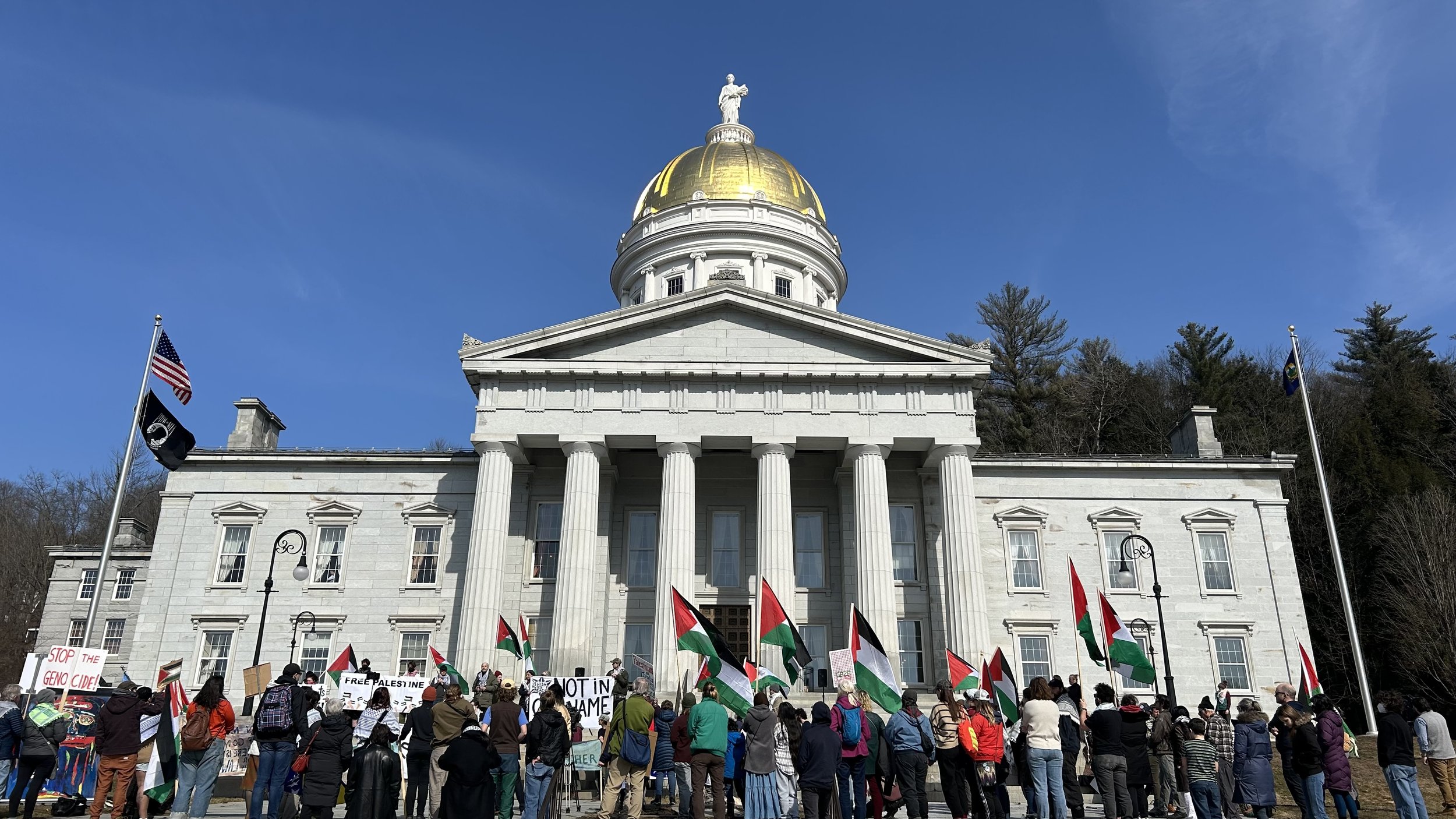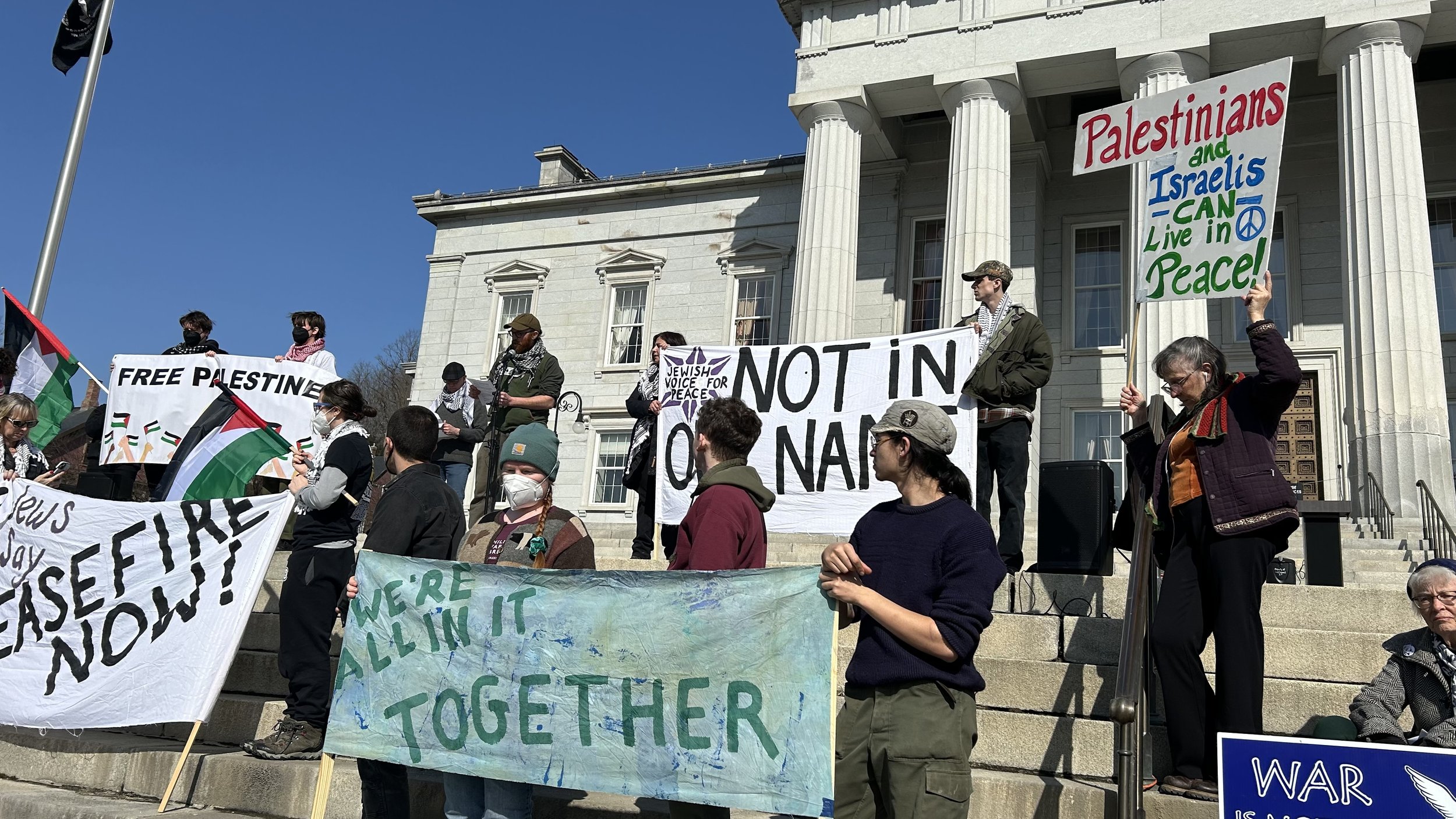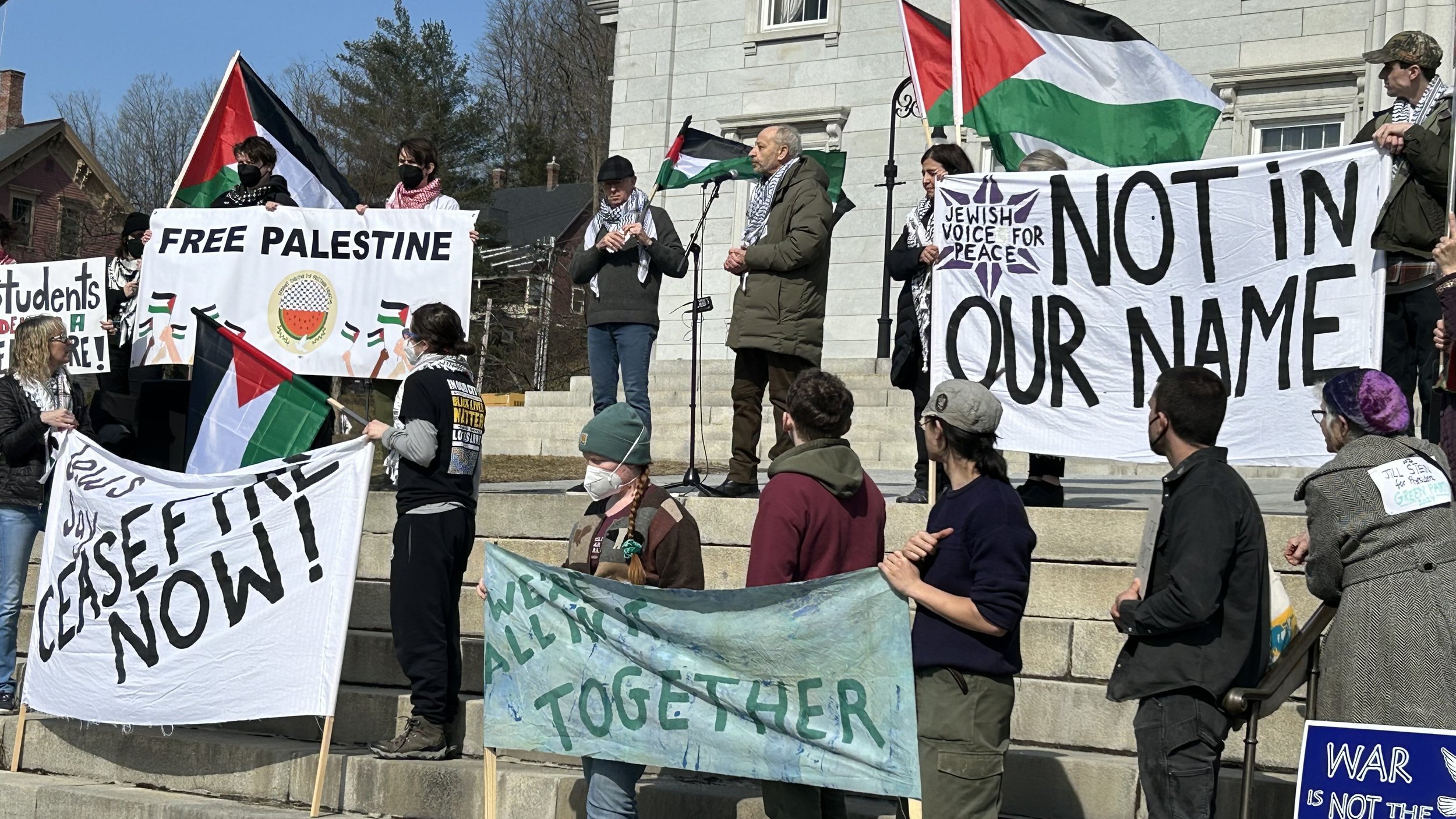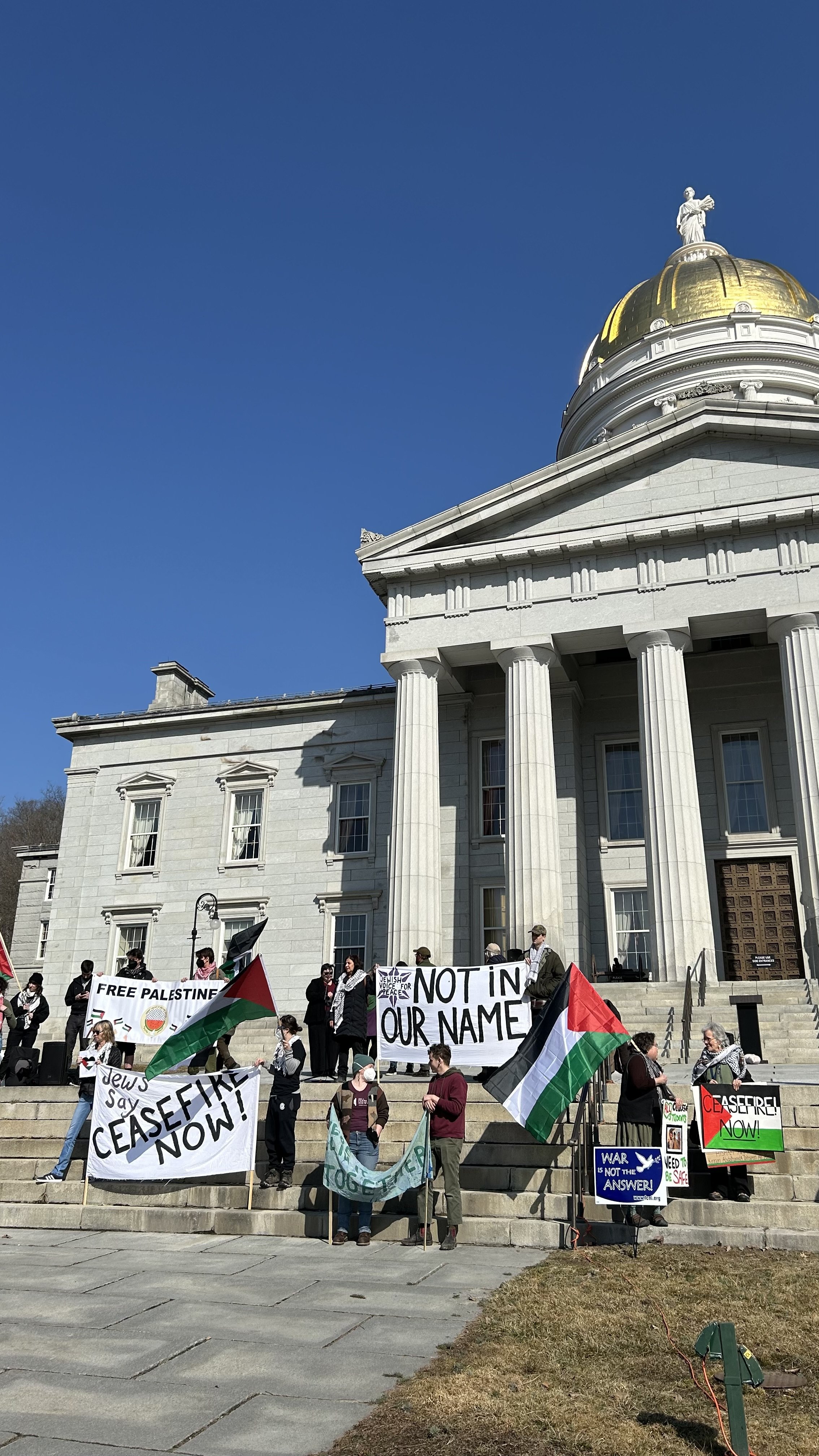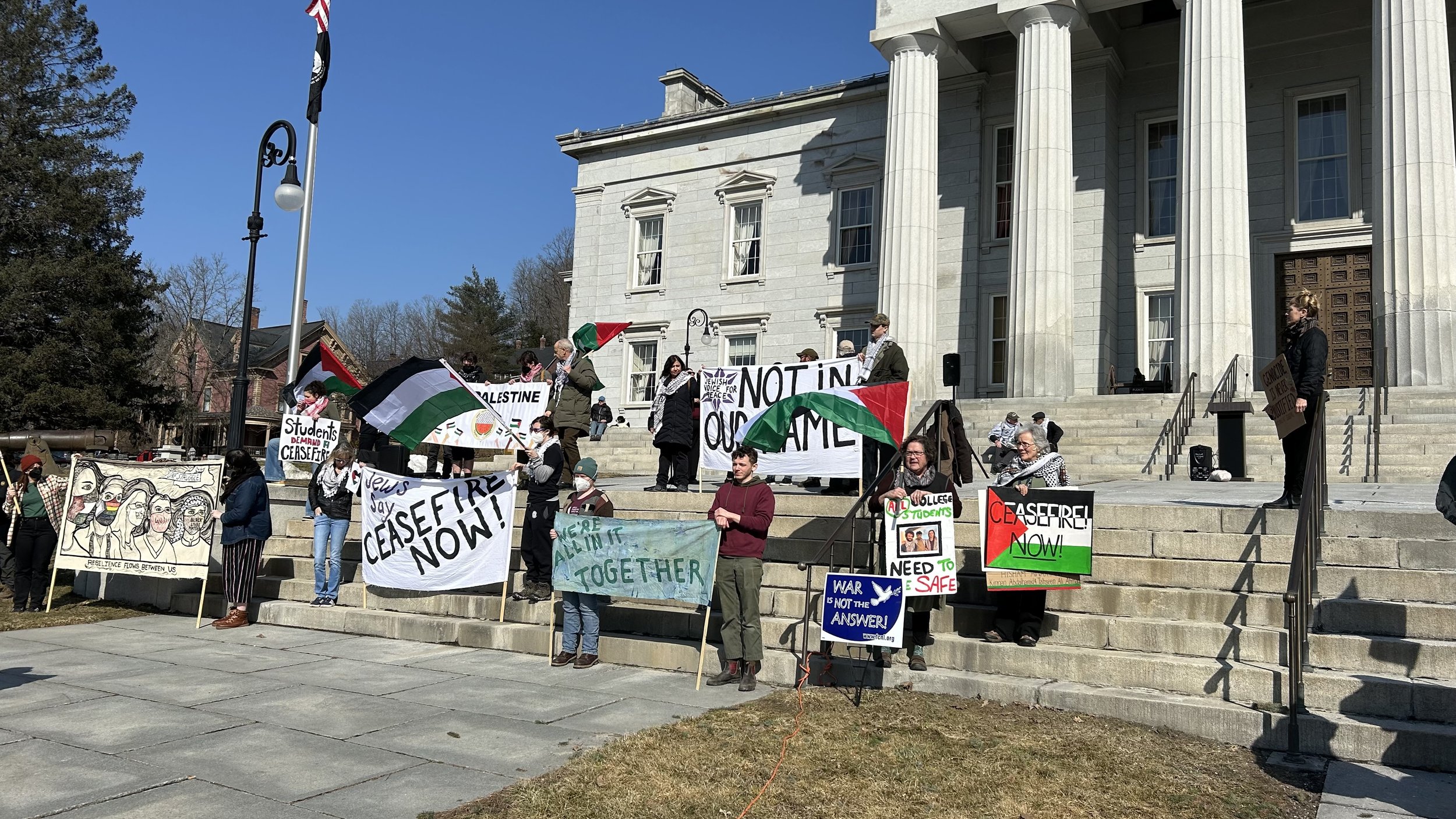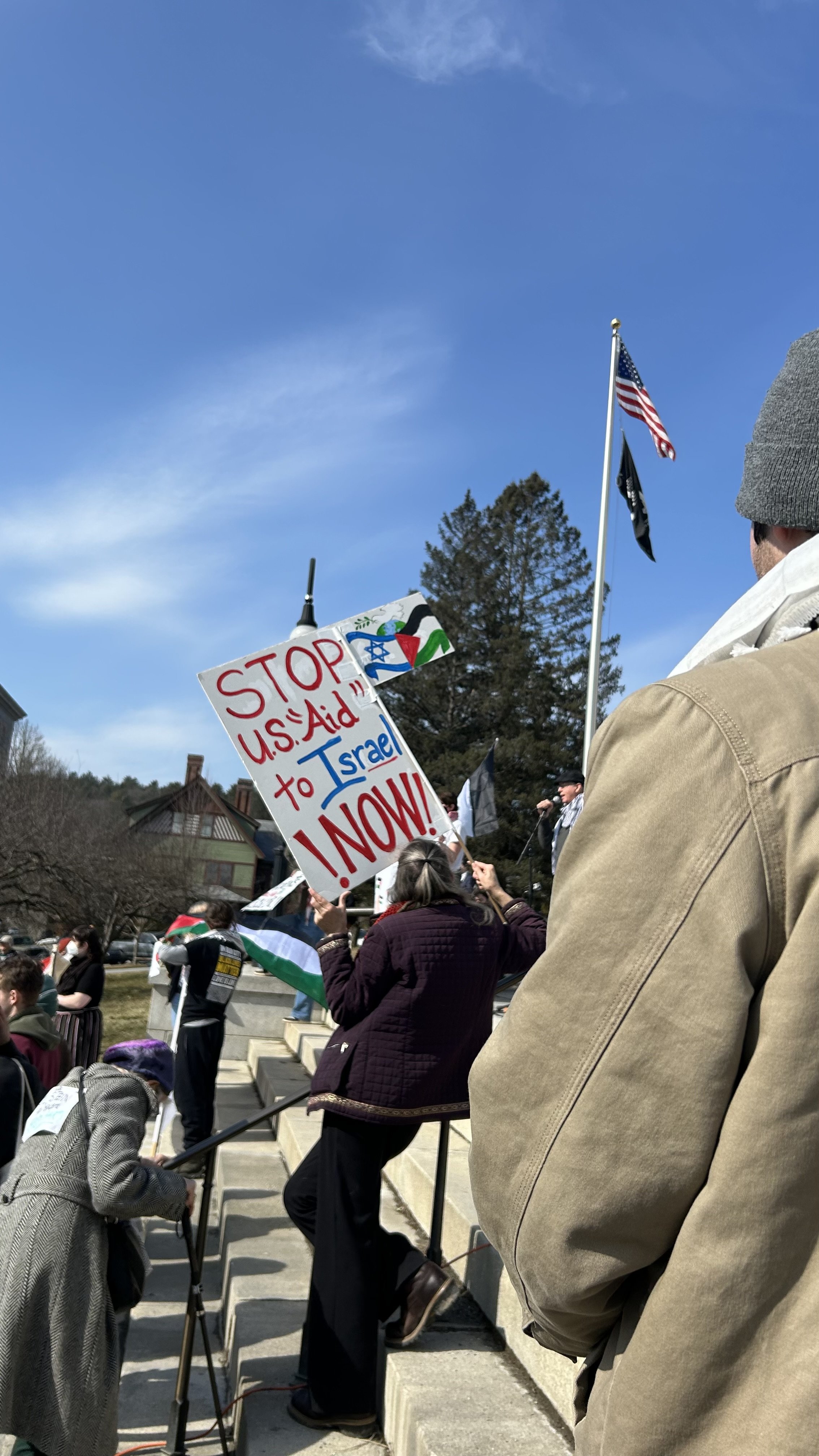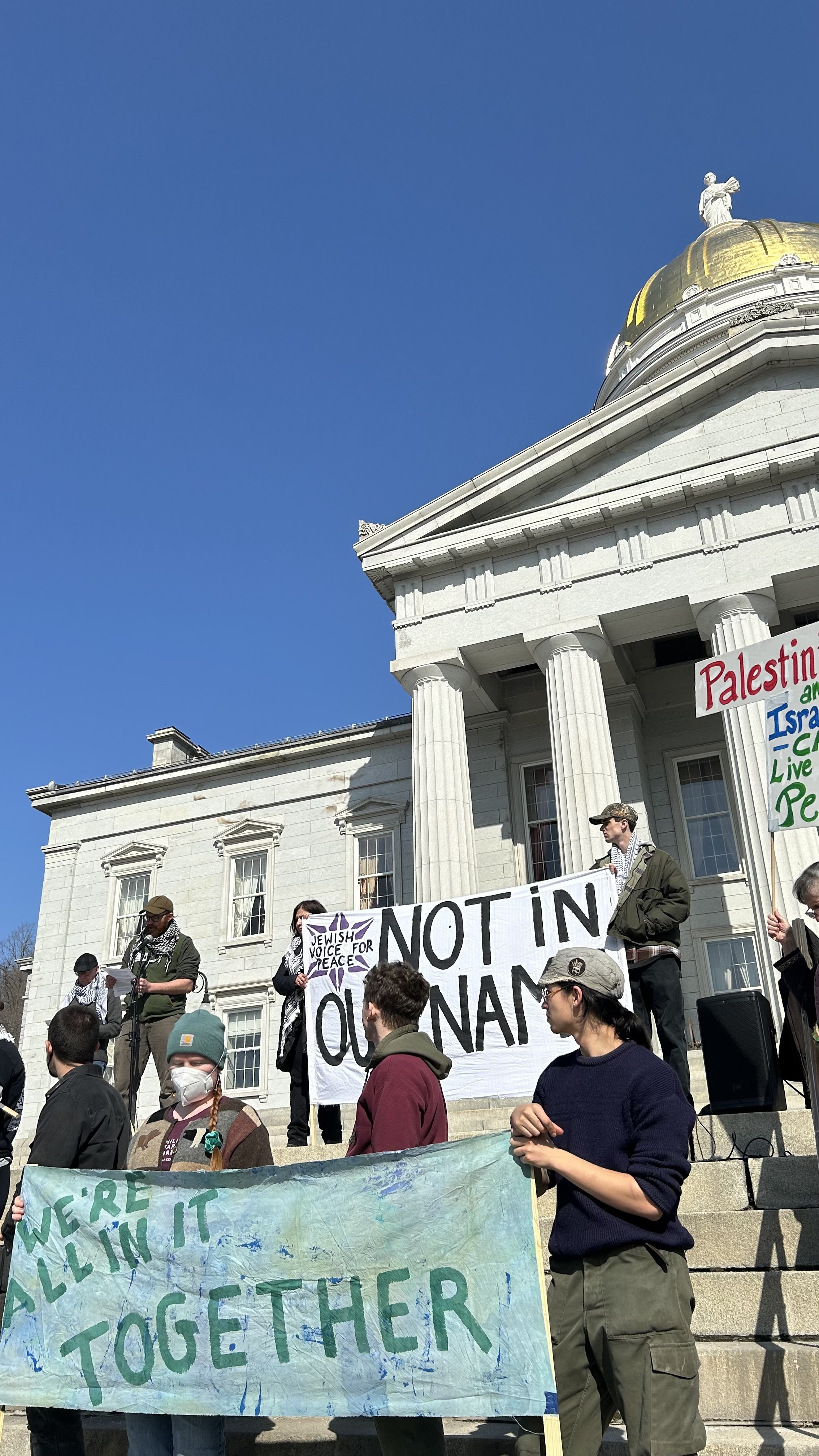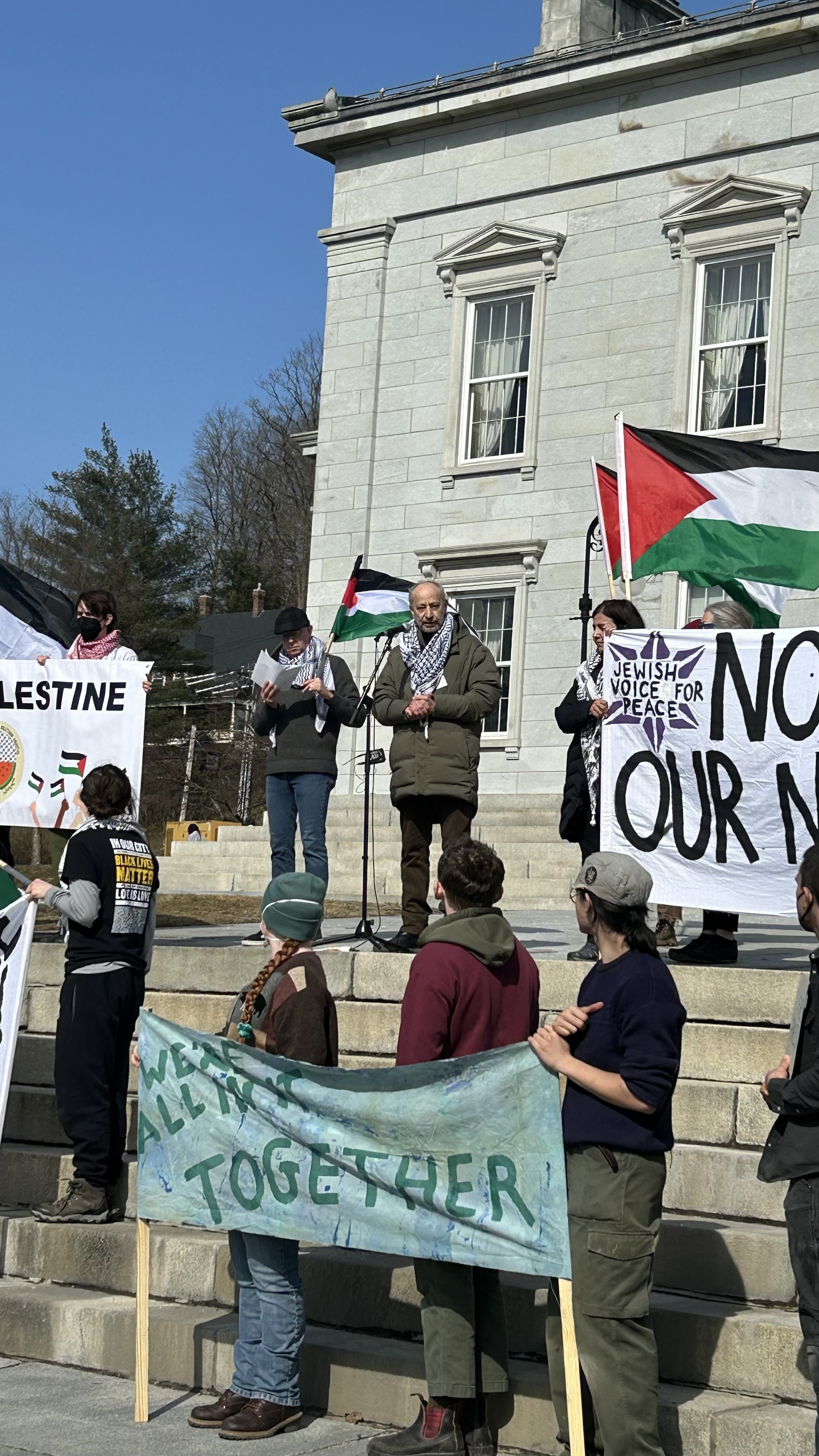2/27 Ceasefire Rally at the Statehouse
At the Ceasefire Rally and press conference at the statehouse held on Tuesday, February 27th, Graham Unangst-Rufenacht, Rural Vermont’s Policy Director, along with several other organizations and individuals, was asked to speak about food sovereignty and its inherent connection to human rights and democracy. The ceasefire rally and press conference, organized by the Vermont Coalition for Palestinian Liberation, capped an effort urging the Vermont General Assembly to sign onto a ceasefire letter, pressuring the Biden administration to demand, and commit to, a ceasefire in Gaza. You can read Graham’s speech and see pictures from the day below.
My name is Graham Unangst-Rufenacht, I am the Policy Director at Rural VT - a nearly 40 year old member-based organization working for food justice and food sovereignty through education, organizing and advocacy. Through our membership and work in the National Family Farm Coalition, we are also a member organization of La Via Campesina - one of the largest social movement organizations in the world.
Inherent to food sovereignty is an explicit focus on human rights for all people, democracy, the rights of peasants and indigenous peoples, the right to food, territorial rights, internationalism and solidarity.
We are here today in support of - and with gratitude for - this effort by these legislators and the organizations and individuals they have been working with, to author this letter; using their political power as representatives of their constituents, and this place we call home, to call for a ceasefire in Gaza, and for the end of military aid to Israel. I want to read parts of a statement made by La Via Campesina on October 27th which contextualizes this moment in the realm of our work in food and agriculture:
For decades, small food producers, including fisher folk and farmers have been denied access to their waters, land and other crucial common goods. Many were killed by Israeli forces while seeking to secure their livelihoods. The Israeli occupation has created a military exclusion zone on almost half of Gaza’s arable land, and a maritime buffer zone that allows access to barely 15% of the Mediterranean, which makes it impossible for fishermen to catch an adequate amount of fish to sustain their communities. This, added to the blockade on exports and imports, access to food, agricultural inputs, and fuel, and the repetitive aggressions turned Gaza into a cramped open-air prison where Palestinians suffer collective punishment and are deprived of their rights, including the right to adequate food. The right to food is recognized in the 1948 Universal Declaration of Human Rights, and is enshrined in the International Covenant on Economic, Social and Cultural Rights which Israel has signed and ratified 57 years ago.
More than 700 Israeli military checkpoints divide the West Bank, which completely separates the Al-Aghwar area that produces 80% of the food of Palestinians. Some 100,000 Palestinian families that depend on olive production are unable to access their lands for the harvest, in Gaza and in the West Bank primarily, due to the thousands of assault rifles that have been distributed by the Israeli government to the settlers. Since the year 2000, the Israeli occupation has destroyed 3,000,000 fruit and olive trees to displace Palestinian farmers. Israel’s continuous 17-year blockade has also led to a severe water crisis in Gaza…
I would add that we are now seeing the culmination of the denial of the right to food, with the excruciating onset of manufactured starvation in Gaza.
Although we come here in support of this effort from our representatives - we must also admit deep disappointment that in this moment of this 100 years of war against the people of Palestine; that we have not done, and are not doing more as a State given the complicity of the United States in the Israeli apartheid, occupation, displacement and killing of the Palestinian people over many years - and now this escalation which the International Court of Justice has declared to “plausibly” be a genocide, ordering “immediate and effective measures” to protect Palestinians in the occupied Gaza Strip from the risk of genocide by ensuring sufficient humanitarian assistance and enabling basic services. Israel - and the United States - have failed to comply, and we should not be surprised. If those in power will not yield to the International Court of Justice, if they will not yield to serious threats to their own political power, if they will not yield to tens of thousands of murdered, maimed, and starving Palestinian children - what makes us think that our voices will be listened to?
Nelson Mandela and Desmond Tutu - people who understood apartheid and oppression more than likely any of us standing here today - championed the Palestinian cause. Tutu said that Israel's apartheid is even worse than South Africa’s. And importantly for us here today, considering what effective action looks like, he said that “what ultimately forced these leaders together around the negotiating table was the cocktail of persuasive, nonviolent tools that had been developed to isolate South Africa, economically, academically, culturally and psychologically”. Boycott, Divestment and Sanctions.
Our actions and tactics must escalate, because right now, the state of VT attributes greater societal cost to the “enteric emissions” of the cattle on my farm than it does the US-made and manufactured bombs dropping on Gaza from F-35s like those housed at the Burlington Air Base. There cannot be a “politically impossible” in a moment like this; there can be no deference to “leadership” whether it be in the Executive or Legislative branches of federal or local government. Our interest, and what we must work towards, is politically necessary. Our political power is not in our individual positions in State government or organizations, it is in working together with and for the people of Vermont - in solidarity for human rights globally. Representatives, members of the public, member-based organizations - the politically necessary will only become politically possible when we work to create change and policy together from the ground up, and make power cede to the demands and real needs of the people here in VT and around the world. Rural VT is here with you in this work to end the occupation, apartheid and genocide - and to bring repair, return, and self-determination to the people of Palestine.
Free, Free Palestine!

